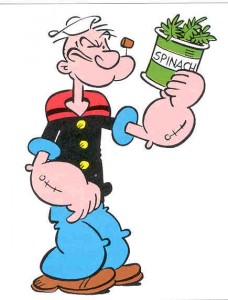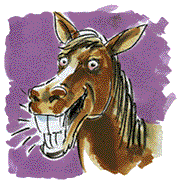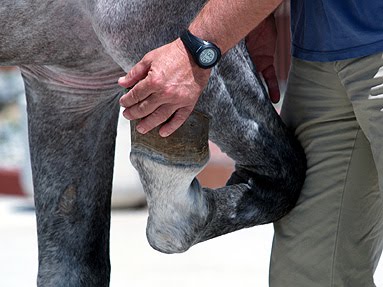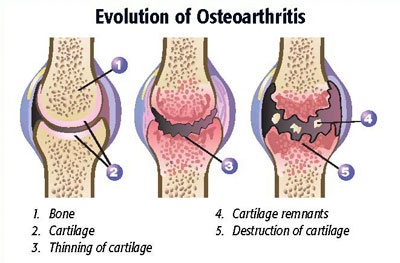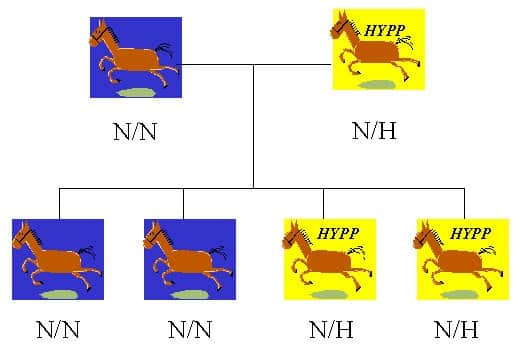Sometimes, I think I’m speaking Greek.
POLITICALLY CORRECT ASIDE: Not that there’s anything wrong with Greek, of course, and there are many wonderful people who speak Greek. Still, it’s not that useful a language in the barns of southern California, at least the ones that I most commonly frequent, so, if I were speaking Greek, people would have a very difficult time understanding me. Which they seem to sometimes do anyway. Which is the point of the article.
Anyway, after years of accumulating examples, it seems that just about anything that I say to people about their horses comes with an undertone of apprehension. Given that people are asking me advice for how to care for their horses, I am pretty much compelled to say something; I mean, it is my job, and I’m not inclined to be rude. Of course, it behooves me to try to be as clear as possible – it’s not good to have misunderstandings and mistakes. So, why is it that I sometimes feel like I’m speaking in tongues, or that every pronouncement has some hidden meaning? Is it really so hard to just take what I have to say at face value?
Well, maybe so. Within a week of moving to southern California, I was confronted by a farrier. He was angry: angry with me. I didn’t even realize that I had spent enough time in the area to make people mad at me (usually, it takes a bit longer). But he was clearly upset by something I said. Angrily, he asked, “What’s the matter with the way I shoe that horse?”
Frankly, I was bewildered by the question, and for several somewhat related reasons. First, I didn’t know who he was; second, I didn’t know what horse he was talking about; third I hadn’t recalled giving any shoeing information to anyone, in my brief stint in my new surroundings. But being confronted by a man with preternaturally large forearms who is also carrying sharp tools has a way of clearing your focus and forcing you to try to defuse a potentially explosive situation, particularly when the explosion is likely to be directed at you.
Taking the cordial tack, I first introduced myself. Then, I asked him what horse he as talking about. It wasn’t hard to remember the horse – I’d only seen a few at that point in time. But no matter how hard I tried, I couldn’t figure out what I had said that had made him so mad. Then it came to me – I had asked my client who shod her horse. In so doing – merely by trying to start a conversation – I apparently, and unintentionally, implied that something was wrong. Who knew?
Or take the horse whose teeth I recently floated. While I firmly believe that there is very little need or support for many “routine” dental interventions, this horse’s teeth were like little razors. So, in the course of looking at the horse, I invited the horse owner’s friend, who happened to be there, and, like most horse owners (and cats) was very curious, to feel the teeth, so she could learn a bit about what a horse’s teeth felt like. She was happy, the horse was happy, and the job got done. I even put a note on my invoice that my client should ask her friend about her horse’s teeth (I’m all for encouraging communication between friends).
Oops. Upon receipt of the invoice, my client called her friend, apparently worried to death. Happily, her friend (also a client) told her that everything was OK, and that she thought it was really cool that she got to feel inside a horse’s mouth. Everyone got a good laugh out of the situation. And I only ground my teeth a little bit.
And then, there are the times that I call long-time clients who have also become friends. When calling up a friend – to go to lunch, to go to dinner, or just to say, “Hi” – it’s always dispiriting to be greeted by, “What’s wrong?” I understand, but still…
The point is that when it comes to taking care of your horse, there’s actually an important relationship taking place. It’s even been given a name: the Veterinarian-Client-Patient Relationship. The transaction is thought to be so important that it’s even been given an acronym for goodness sakes: the VCPR
Want some more details? This is important stuff. Check out the FAQ sheet put out by the American Veterinary Medical Association, and look around at the various links. It’s about “pets,” but a good VCPR is important for all animals under veterinary care. CLICK HERE for the AVMA FAQ sheet on the VCPR.
Here’s the thing. It’s up to the “V” to communicate clearly, and to look after your horse. Of course, you’re an important part of the VCPR as well (heck, you’re the second letter). If I’m not clear about something, or if you’re wondering how I could have said what you thought I said – ASK QUESTIONS! Don’t just stand there looking with a big smile on your face, nodding your head, if I use some obscure medical word that you don’t understand; if you don’t get it, it’s my fault, not yours. And for goodness sake, we wouldn’t want our “R” to get messed up because of a misunderstanding, nor would we want to get the “P” in trouble because of a failure to communicate on things like drug dosage or proper care. And, as I’ve written before, there really aren’t very many stupid questions, so you don’t have to worry about making a fuss. Plus, you’re paying the bills.
 Anyway, try to keep in mind that even though you may not always know what’s going on with your horse’s health, ultimately, you’re the captain of the ship. Make sure that everyone who is trying to help you is on the same page. Make sure everyone is speaking a language that you understand. It’s all for your “P.”
Anyway, try to keep in mind that even though you may not always know what’s going on with your horse’s health, ultimately, you’re the captain of the ship. Make sure that everyone who is trying to help you is on the same page. Make sure everyone is speaking a language that you understand. It’s all for your “P.”




